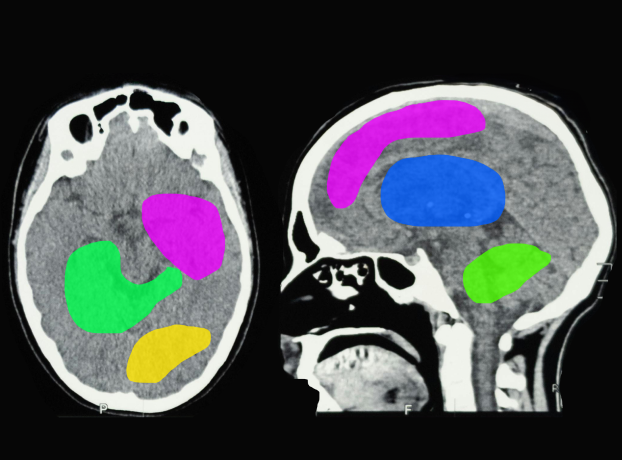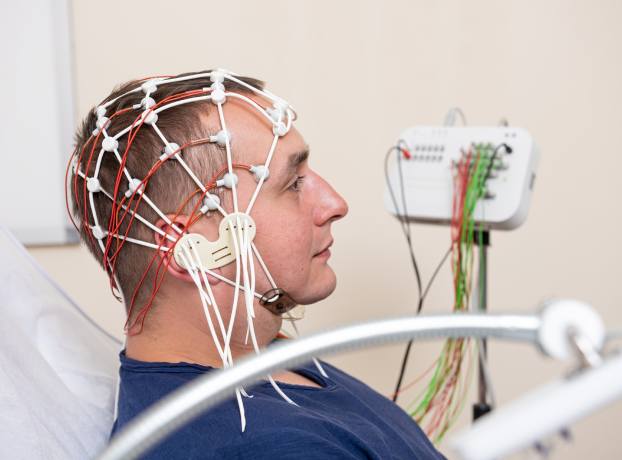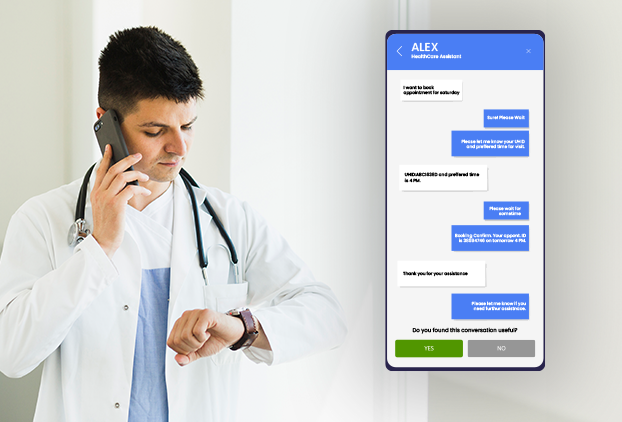Smarter Care with AI - The Future of Healthcare
Need Healthcare industry data? Let’s connect

Patient expectations are changing along with the healthcare landscape, which makes it essential for providers to strengthen relationships, improve communication, and expedite procedures. AI is at the vanguard of this rapid development, enabling healthcare systems to meet and perhaps surpass these objectives.
2B
High Quality annotations delivered
2B
High Quality annotations delivered
2B
High Quality annotations delivered
AI-Powered Healthcare Transformation
Explore how AI can drive innovation in fields like medical imaging, drug discovery, and patient care with our tailored data solutions.
Healthcare Data Annotation
Training AI in healthcare requires precise annotation. Our specialty is accurately categorizing patient information and medical photographs. We provide AI the ability to identify illnesses, evaluate photos, and produce useful insights by using human-in-the-loop techniques. High-performing models for clinical and diagnostic applications are guaranteed by our services. For dependable and expandable healthcare annotation solutions, collaborate with us.
- Medical Image Annotation
- Pathology Annotation
- Semantic Segmentation
- Clinical Text Annotation


Data De-identification
Sensitive information like names and social security numbers that may be used to directly or indirectly link a person to their personal data are removed as part of our PHI/PII deidentification capabilities. It’s what HIPAA requires and what patients deserve.
Text material including sensitive information may be anonymized with a very high degree of accuracy using our in-house de-identification software. In order to deliver de-identified data, APIs first extract the PHI/PII entities found in text or picture datasets, and then they mask, remove, or conceal those fields.
Healthcare Data Collection
Training trustworthy AI models in the healthcare industry requires high-quality datasets. We gather and compile a variety of healthcare data, such as sensor-based health measurements, imaging datasets, and medical records. Our experience guarantees that datasets are complete, verified, and prepared for applications powered by AI. Our datasets facilitate the development of strong AI models that improve patient outcomes in areas ranging from diagnosis to therapy planning. You can rely on us to use data created for healthcare innovation to power your AI solutions.
- Medical Imaging Data
- Genomic Data
- Wearable Sensor Data
- Electronic Health Records (EHRs)

Key Use Cases Healthcare AI
Medical Imaging
Through the accurate identification of abnormalities in X-rays, MRIs, and CT scans, artificial intelligence is revolutionizing medical imaging. Modern algorithms help early diagnosis and treatment planning by analyzing pictures more quickly and accurately. AI improves the effectiveness and decision-making of radiologists in a variety of tasks, including tumor detection and chronic disease monitoring. It's transforming diagnostic imaging by lowering human error and accelerating outcomes rapidly. Improved imaging technology makes medical care more precise, available, and life-saving.
Electronic Health Record (EHR) Analysis
AI-powered EHR analysis provides real-time insights from extensive medical histories while streamlining patient data management. It assists physicians in making prompt, well-informed decisions by seeing trends, highlighting hazards, and forecasting results. Routine job automation frees up healthcare practitioners to concentrate on patient care by lowering administrative responsibilities. Healthcare systems may become more individualized and efficient by incorporating AI into EHRs. Better patient outcomes and care delivery are so guaranteed.
Telemedicine Support
AI improves telemedicine by making it possible for individualized virtual consultations, real-time diagnostics, and symptom assessment. During online conversations, it analyzes patient data and gives healthcare practitioners useful information. Chatbots and other AI-powered solutions improve patient interaction and expedite distant treatment. This guarantees that healthcare is available even in isolated or underdeveloped places. Telemedicine becomes more intelligent, quicker, and patient-focused with AI help.
Healthcare IoT Data Annotation
AI uses information from IoT devices, such as smart sensors and wearable health monitors, to produce insights that may be put to use. Accurate health trend analysis is ensured by precise annotation of this data, which makes it possible to identify problems like irregular heart rhythms or sleep disorders early on. Personalized treatment and preventative healthcare initiatives are supported by annotated IoT data. It connects meaningful medical findings with real-time monitoring.
Drug Development
By evaluating enormous datasets to find promising compounds and forecast results, artificial intelligence speeds up the drug discovery process. By improving chemical designs and modeling clinical trials, it cuts down on research time and expense. Machine learning finds patient-specific remedies and finds novel applications for current medications. This makes individualized treatments and quicker reactions to new illnesses possible. AI will make medication development quicker, more intelligent, and more effective.
Personalized Medicine
By evaluating genetic, clinical, and lifestyle data, AI powers personalized medicine by customizing patient care. It ensures the greatest results by forecasting how patients will react to particular medications. AI makes it possible to give care with precision, from managing chronic diseases to developing tailored cancer medicines. AI-powered personalized medicine increases patient satisfaction and decreases the need for trial-and-error therapies. This method guarantees care that is as distinct as the patient.
Why Choose Macgence for Your
transcription?


 Wide Industrial Coverage
Wide Industrial Coverage
Macgence’s solutions span a wide range of industries, ensuring tailor-made strategies that drive success, no matter your sector.

 Security and Confidentiality
Security and Confidentiality
We prioritize the security and confidentiality of your data, giving you peace of mind while we help you unlock actionable insights.

 Dataset Customization
Dataset Customization
With Macgence, your datasets are fully customizable, empowering you with the precision and relevance your business needs to thrive.

 Exceptional Workflow
Exceptional Workflow
Our streamlined workflow ensures smooth execution, maximizing efficiency and delivering top-notch results every time.

 Affordable Quick Services
Affordable Quick Services
Get high-quality results at lightning speed with Macgence’s affordable and rapid service delivery, ensuring your business stays ahead.
Healthcare Datasets for Conversational AI
These datasets are created at Macgence with human-in-the-loop methods, guaranteeing precision and applicability. Macgence provides premium training data that is customized to meet your unique healthcare AI requirements by combining human labor with AI technologies.

Conversational AI Datasets
In order to comprehend and react to patient-doctor interactions in a natural way, conversational AI uses datasets that are rich in healthcare conversations. These datasets are essential for training virtual assistants, chatbots, and other AI applications designed specifically for the medical industry.

Doctor Dictation Dataset
Medical transcription AI is based on transcribed medical dictations, which are the focus of doctor dictation datasets. These datasets improve clinical documentation efficiency by training algorithms to translate oral medical notes into structured text.
Frequently Asked Questions
1. What is the role of AI in healthcare?
By enhancing diagnosis, customizing care, and increasing operational efficiency, AI is revolutionizing the healthcare industry. AI helps physicians make better decisions more quickly and intelligently for patients, from telemedicine support to medical picture analysis.
2. Why does healthcare AI require data annotation?
Medical data may be correctly understood and processed by AI with the use of data annotation. Labeling patient data and medical imagery helps us train AI to recognize illnesses, enhance diagnoses, and offer insights that improve health outcomes.
3. How does healthcare AI define de-identification?
To preserve patient privacy, sensitive personal information is removed from medical data using a procedure known as de-identification. It is crucial for guaranteeing that healthcare data may be utilized for AI and research, as well as for adhering to laws like HIPAA.
4. How might AI help in the creation of new drugs?
By evaluating vast datasets to find potential compounds and forecast treatment results, artificial intelligence (AI) expedites the drug development process. It speeds up the discovery of novel medications by scientists, improving patient care and cost effectiveness.
5. How can conversational AI fit into the healthcare industry?
By allowing chatbots and virtual assistants to engage with patients in a helpful, natural way, conversational AI is revolutionizing the healthcare industry. These artificial intelligence (AI) solutions help with everything from real-time support during virtual consultations to addressing medical queries.
We're here to help with
any questions
Get In touch
Maximise Potential with Macgence’s
Data Generation and Collection Services
powering AI projects and driving innovation.
